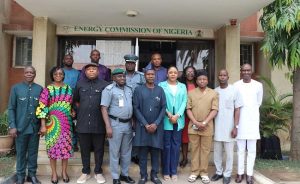The National Technical Committee of the Scaling-up Energy-Efficiency and Climate-Friendly Cooling in Nigeria’s NDC project convened in Abuja to deliberate and review the project’s workplan for 2024.

This committee, a collaboration between the Energy Commission of Nigeria (ECN) and the United Nations Environment Programme (UNEP) with financial support from the Clean Cooling Collaborative (CCC), aims to propel energy-efficient and climate-friendly cooling solutions across Nigeria.
Bringing together experts from various organisations, the technical committee serves as a platform for collaboration, knowledge sharing and strategy development to scale up sustainable cooling practices. The meeting provided a forum for stakeholders to align their efforts, ensuring a unified approach to achieving the project’s objectives.
The director-general of the ECN, the implementing institution for the project, Dr. Mustapha Abdullahi, highlighted the committee’s overarching goal.
He emphasised that the primary objective is to accelerate the adoption of energy-efficient air conditioners with climate-friendly, low-GWP (global warming potential) refrigerants in residential, commercial and public buildings. This strategic shift aims to contribute significantly to Nigeria’s climate targets as outlined in its Nationally Determined Contributions (NDC).
The meeting marks a crucial step in the implementation of the sustainable cooling project, emphasising the commitment of both ECN and UNEP to advancing climate-friendly solutions in Nigeria. By fostering collaboration among experts and stakeholders, the committee ensures a comprehensive and sustainable approach to meeting climate targets in the country.
As the project moves forward, the collaborative efforts of the committee will play a pivotal role in navigating the challenges associated with transitioning to energy-efficient and climate-friendly cooling solutions. The commitment to a cost-effective and sustainable transition underscores the importance of aligning climate goals with practical, implementable strategies.
The committee meeting signified a concerted effort to drive positive change in Nigeria’s cooling practices. By leveraging the expertise of diverse stakeholders, ECN and UNEP aim to contribute meaningfully to the country’s climate resilience and sustainability.
The project’s success hinges on such collaborative endeavours, reflecting a shared commitment to address climate challenges through innovative and impactful initiatives.
